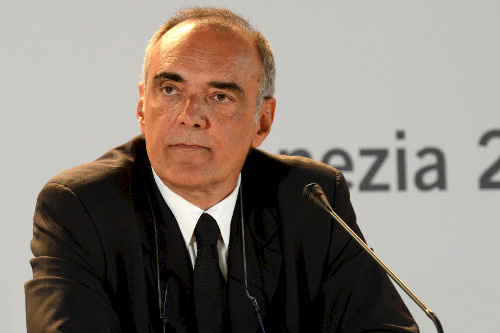In a recent interview, Richard Linklater said that even the greatest filmmakers have always had to deal with issues of money, because cinema is an industry and it takes money to make movies. He also added, however, that much has changed in recent years. There was a time (perhaps a long time ago) that the cultural impact of works by independent filmmakers was much greater. Nobody worried about box-office success, because what really counted was the quality of the films, their artistic value. The same was true in every area of society in general: in the 1960s, nobody really cared that the young Bob Dylan was not earning millions. Today, when there is a lot less money in circulation even though the number of films produced yearly is increasing, it is the only thing that counts and that people talk about, and the potential at the box-office conditions every decision, from the very concept of a film to its distribution.
 In a context such as this, festivals remain one of the few places in which the asphyxiating logic of profit is not predominant. Not that these events are exempt from the influence of money and its relative constraints, but there are good reasons to believe that the space for programming in many festivals is filled with aspirations that may be primarily ascribed to the demands of experimentation and defending auteur cinema, to the pre-eminence of freedom of expression over the relentless pursuit of profit, to the triumph of aesthetics over economics. The intent is not to demonize monetary profit, but on the contrary to rein it into the confines of its primary function, which should be to provide the means for the pursuit of a higher end.
In a context such as this, festivals remain one of the few places in which the asphyxiating logic of profit is not predominant. Not that these events are exempt from the influence of money and its relative constraints, but there are good reasons to believe that the space for programming in many festivals is filled with aspirations that may be primarily ascribed to the demands of experimentation and defending auteur cinema, to the pre-eminence of freedom of expression over the relentless pursuit of profit, to the triumph of aesthetics over economics. The intent is not to demonize monetary profit, but on the contrary to rein it into the confines of its primary function, which should be to provide the means for the pursuit of a higher end.
Festivals are often expected to provide something they cannot supply. And just as often, we do not demand of festivals what they must necessarily provide: not just a snapshot of the present, but the capacity to see things in a different light, to perceive what sometimes remains invisible or unclear, to come into contact with a different idea of cinema, to sniff out new alternative routes, or others that are simply coming into being.
Should the 71st Venice International Film Festival be capable for even a second of coming close to one or more of these intents, it will at least in part have accomplished its purpose. To elucidate the complexity of the present without oversimplification, to observe with curiosity devoid of prejudice and the hope of discovering change as it materializes, setting out to decipher the signs of diversity beneath an apparently conventional surface, to discern the rise of a new auteur or an original production strategy that could spark the renewal we all hope for but is not yet in sight. Fifty films, more or less, can be too many or too few depending on one’s point of view. We hope that they will be enough to give each spectator the possibility of finding at least one good reason for saying that the Venice Film Festival has been, yet again, a useful and even necessary experience.
Alberto Barbera







